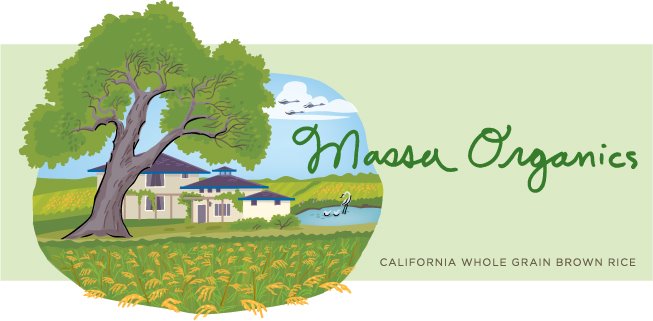So to continue where I left off...
We ordered 120 pekin ducks, which are the standard meat breed. The day old ducklings arrived in the mail, and I have to say, there are few things in this world as cute as 120 little yellow baby ducks running around. Our kids had a great time helping us take care of them.

Ducklings need to be kept warm for the first couple weeks, so normally we would raise them inside under heat lamps. But because we started this project in June, it was plenty hot enough to start them in a brooder outside. We quickly realized that the brooder we had built for them was going to be too small, so we immediately built one three times as large. Once we finished that, we knew it was going to be too small as well, because ducklings grow like nothing you have ever seen! Luckily, by the end of the second week, they were large enough to move into the rice field.

The whole goal of integrating ducks with rice farming is to turn your weeds and pests into duck food, so that not only do you get a weed-free rice crop, you also get ducks to eat. There are several side benefits, but that's the main goal. We turned the ducks out into a smallish section of the rice field that we had fenced off for predator control (as a side note, when John was building the fence in the flooded field, I asked how it was going. His answer: "Worst. Job. Ever.").
"The Power of Duck" says that the ducks should be stocked at about 100 ducks per acre. For this trial run, I didn't want to fence that large an area, so we fenced off about a quarter acre. This is plenty of room for the ducks to swim and forage in, but it turned out to be too small an area to produce enough food to support them. They quickly ate all the weeds in the field, but left the rice plants alone, just as they were supposed to. Thus, we supplemented their natural feed with what else but organic brown rice and wheat!
We grew the ducks for about 9 weeks before we harvested them. I know that the conditions in which they were raised were more humane than probably 99% of the meat ducks in this country. They essentially lived in a pond that allowed them to fully express their "duckiness." They were not raised on slats in a barn with no access to swimming water. These ducks had it good, and you can taste that in the finished product. I am really happy with the taste of the meat. It's superb.
We did learn a few things. I already mentioned that our stocking rate was too high, and that we had to supplement their feed. They also trampled some of the rice in their pond, which would not have been a problem if we had used a larger section of the field. I also think that pekins are not the right breed for integrated rice/duck production. They are a little too large to move effectively between the dense rice plants, and they are not active enough in their foraging abilities. Pekins have been bred to sit around and eat all day, gaining weight quickly for industrial meat production. They did well enough in the field, but didn't forage well enough to gain weight quickly. As such, they are a little on the thin side, with the carcasses weighing out at 3.5-4 lbs. We're currently researching which breeds to try next, and I think we're going to try Saxony and Welsh Harlequins next.
It was fun to have the ducks on the farm, and it has been a goal of ours to bring animals back to the farm. We're going to try raising ducks again, as I think with the right breed and the right stocking density it could be very successful.




5 comments:
I agree there is nothing cuter than baby ducks! I felt bad about butchering our ducks but they were bought as meat birds and they lived a happy life with us on our micro-farm. Just starting to eat all the sausage we made from our birds, it's good!
I was really fascinated by this post. I love duck and never knew they could be utilized to eat the plants we don't want. And like you said, you get the benefit of humanly raised ducks to put on your table.
Congrats and well done!
Someone over at the blog "The Healthy Home Economist" linked to your post here. Are still doing the integrated duck system? If so, do you have ducks for sale?
Yes! We are still experimenting with ducks. Our last try with the Saxony and Welsh Harlequins went very well from the standpoint of weight gain and quality of the meat. However, we had serious problems with predation--which I think may have been from great horned owls. Right now we don't have any ducks for sale, but may have them again in August of this year.
I was really fascinated by this post.
Post a Comment